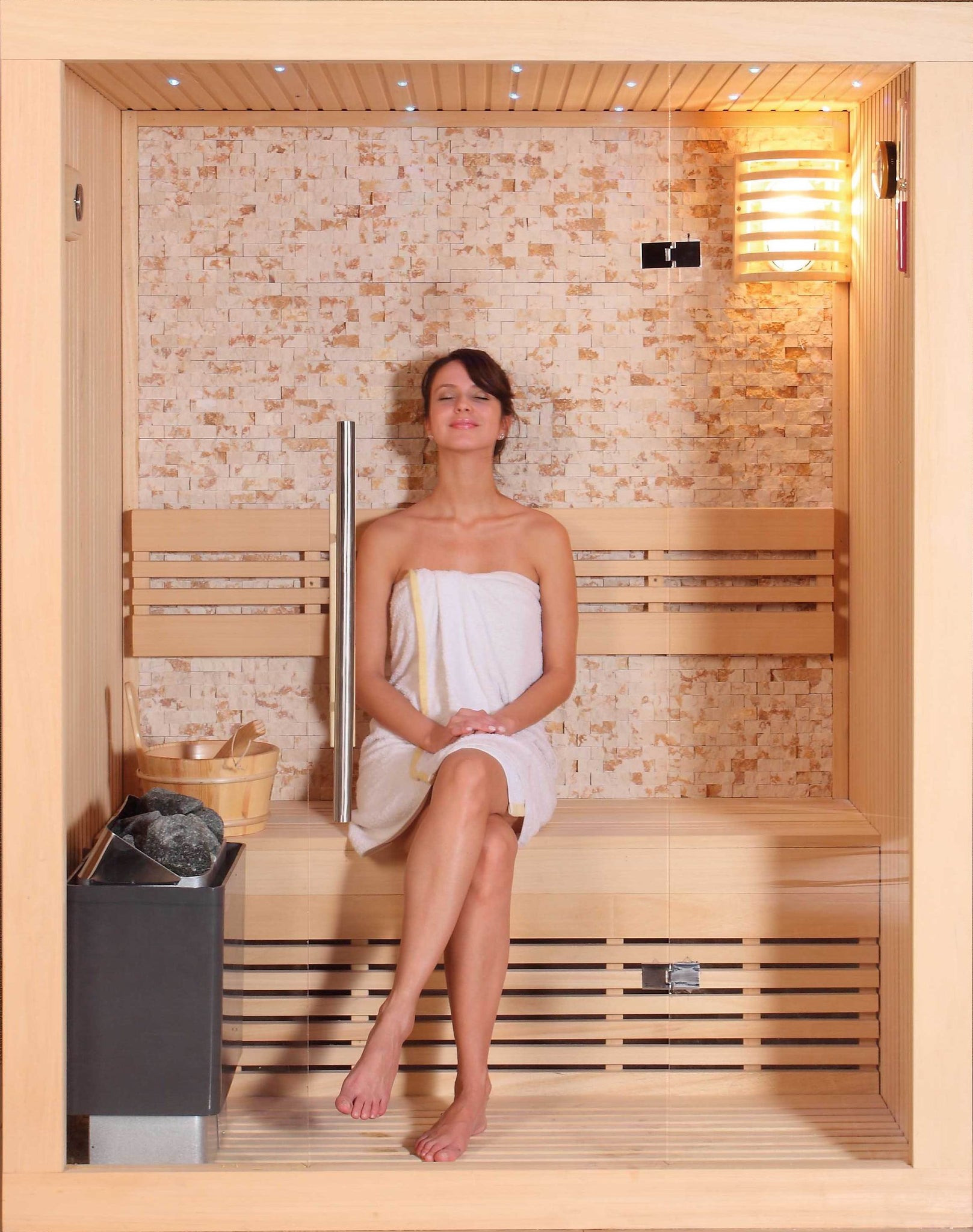The Main Principles Of Traditional Sauna
The Main Principles Of Traditional Sauna
Blog Article
What Does Traditional Sauna Mean?
Table of ContentsTraditional Sauna Fundamentals ExplainedThe Facts About Traditional Sauna RevealedExamine This Report about Traditional SaunaAbout Traditional SaunaThe Ultimate Guide To Traditional Sauna
A lot of the weight shed in a sauna is water loss and is re-gained upon rehydrating. However, undoubtedly sauna can be an integral part of a healthy weight loss program. To check out the differences in between traditional and IR saunas, I will divide these into proven, theoretical, and produced differences.Thus, the best point in the saunawhich is at the ceiling straight above the sauna heateris commonly in between 185 and 190 F. Claims that a typical sauna surpasses 200 F is just not true and not appropriate for electric saunas offered in the US. The temperature level for a far-infrared sauna is usually established in between 120 and 140 F; nevertheless, unlike the traditional sauna, the goal in and IR room is not to accomplish a high temperature.
Due to this, the temperature difference is virtually irrelevant, given that excessive sweating causes both sauna types, yet the technique of warming the body is different. In an IR sauna the bather will feel hot and will sweat profusely, but at much lower temperatures (Traditional Sauna). Hence, if the goal is to spend longer time periods in the sauna, the IR sauna is an excellent selection
When a standard sauna has actually been appropriately warmed, the sauna wall surfaces are warm, the air temperature level has accomplished established temperature and the rocks are very heated. As an interesting side note, the warmed wall surfaces and the rocks are releasing far-infrared warm, integrated with the warmed air, to produce an "enveloping heat".
Some Known Details About Traditional Sauna

When the heat is accomplished, the aspects cycle on and off to preserve the heat. The majority of conventional sauna individuals take pleasure in putting water over the rocks to produce heavy steam to increase sauna humidity degrees. The advantages of putting water over the rocks consist of: making the space a lot more comfortable, dampening the nasal flows, and permitting the usage of aromatherapy by mixing vital oils with the water.

When the power enters the body, it causes the body temperature level to enhance and inevitably leads to sweat. In an infrared sauna it is necessary for the emitters/heaters to stay on virtually regularly. Since there is no mass of rocks to maintain heat, the sauna will certainly cool down if the emitters turned off.
As mentioned over, the sauna bather in an infrared space desires to position himself before running emitters to get maximum advantage from the heat. The heating time for both spaces can be really various, relying on exactly how the spaces are used. For have a peek at this site a conventional sauna, a bather must enable 30-40 mins for the room to achieve a desired temperature level and to properly pre-heat the rocks.
The smart Trick of Traditional Sauna That Nobody is Talking About
A well built sauna will typically accomplish a temperature of 150-160 F in regarding 30-40 minutes. For hotter temperature levels, the area might require to warmth for a longer duration.

Typical saunas often tend to be bigger (thus utilize more electrical energy) than infrared saunas, although traditional saunas are definitely readily available in one and 2 individual sizes as well. For a two-person traditional sauna, 5x6 or 5x7 size is most preferred. The top bench can conveniently seat two or 3 people and is additionally long view enough to relax during the sauna session.
A Biased View of Traditional Sauna
The ordinary cost per kWH of electrical energy in the united state is around $0.11, so a 4.5 kW heating system will cost roughly $.50 to run for one hour, if the heating unit runs continuously for one hour. Generally a sauna heating unit will run for 75% of the very first hour and 50% of succeeding hours on because the aspects cycle once the established temperature level is attained.

There is a rarely gone over distinction in the social experience between the 2 spaces. While our culture has shed a few of the social benefit of the typical sauna experience, it can be really socially satisfying (Traditional Sauna). From family members time in the sauna, to heart-felt conversations with loved ones, to sauna partiesthe conventional sauna experience can lead to intimate mingling
The Only Guide to Traditional Sauna
A lot of greater end infrared rooms include tinted light treatment, audio systems and full-glass fronts.
Report this page